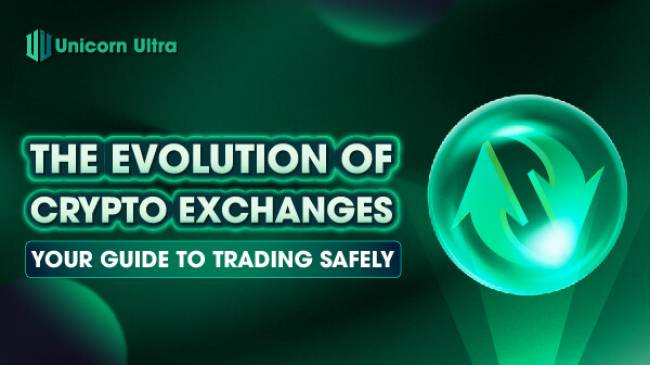Cryptocurrencies have revolutionized the financial landscape, offering an alternative means of value exchange outside traditional banking systems. At the heart of this digital revolution lies cryptocurrency exchanges, platforms that enable users to buy, sell, and trade various digital assets.
In this article, we will explore what a cryptocurrency exchange is and emphasize the importance of safety when conducting transactions.
Table of Contents
What is a Cryptocurrency Exchange?
A digital currency exchange, also known as a cryptocurrency exchange (DCE), is a company that enables individuals to engage in the trading of digital currencies or cryptocurrencies for various assets, including traditional fiat money or other digital currencies.
These exchanges may offer the option of accepting payments via credit cards, wire transfers, or alternative payment methods in exchange for digital currencies or cryptocurrencies. In its role, a cryptocurrency exchange can operate either as a market maker, usually earning a transaction commission from the bid-ask spreads, or as a matching platform that levies fees for its services.

Centralized Exchanges (CEX)
Centralized exchanges, or CEXs, are the most common and widely used platforms in the crypto world. Operated by private companies, CEXs function as intermediaries that hold users' funds and facilitate transactions. They offer user-friendly interfaces, high liquidity, and a wide variety of trading pairs. Popular CEXs include Coinbase, Binance, and Kraken. However, since CEXs manage users' funds, they also present security risks. Users must trust the exchange's security measures to protect their assets from potential hacks or internal vulnerabilities.
Decentralized Exchanges (DEX)
Decentralized exchanges, or DEXs, operate on blockchain technology, eliminating the need for intermediaries. DEXs allow users to trade directly with each other using smart contracts. This peer-to-peer trading ensures that users have full control over their funds, reducing the risk of hacking or theft. Additionally, DEXs align with the core principles of cryptocurrencies, promoting privacy, security, and censorship resistance. Popular DEXs include Uniswap, PancakeSwap, and SushiSwap.
Hybrid Exchanges
Hybrid exchanges combine features of both CEXs and DEXs to offer a balance between convenience and security. These exchanges typically have centralized order books but allow users to retain control of their private keys, offering enhanced security. Hybrid exchanges aim to provide a user-friendly experience while minimizing the trust required in a centralized entity.
Ensuring Safety While Utilizing Cryptocurrency Exchanges
Ensuring the safety of your crypto transactions is of paramount importance. Here are some essential safety tips when using cryptocurrency exchanges:

Research Thoroughly: Before using any exchange, conduct thorough research. Check user reviews, security practices, and the exchange's track record. Stick to reputable and well-established platforms.
Enable Two-Factor Authentication (2FA): Adding an extra layer of security with 2FA can significantly reduce the risk of unauthorized access to your account.
Use Hardware Wallets: Consider using hardware wallets to store your crypto assets. Hardware wallets are physical devices that store your private keys offline, making them less susceptible to hacking attempts.
Beware of Phishing Attacks: Watch out for phishing emails or websites that mimic legitimate exchanges. Always ensure you are using the correct web address before entering any sensitive information.
Keep Software Updated: Regularly update your device's software and antivirus programs to protect against potential vulnerabilities.
Diversify Holdings: Avoid keeping all your assets on a single exchange. Diversify your holdings and use multiple exchanges for added security.
Conclusion:
Crypto exchanges play a crucial role in the world of cryptocurrencies, serving as gateways for enthusiasts and investors to access digital assets. Centralized exchanges offer convenience but require trust in the platform's security.
On the other hand, decentralized exchanges prioritize user control and security, but may lack certain features and liquidity. Hybrid exchanges seek to strike a balance between the two.
Regardless of the type of exchange you choose, prioritizing safety is essential in safeguarding your valuable crypto assets. By following best practices and staying informed, you can navigate the world of crypto exchanges with confidence, empowering yourself to explore the exciting opportunities the crypto market has to offer.
I hope the article What is a Cryptocurrency Exchange? will be helpful to you. Follow Unicorn Ultra to stay updated with more useful information.






